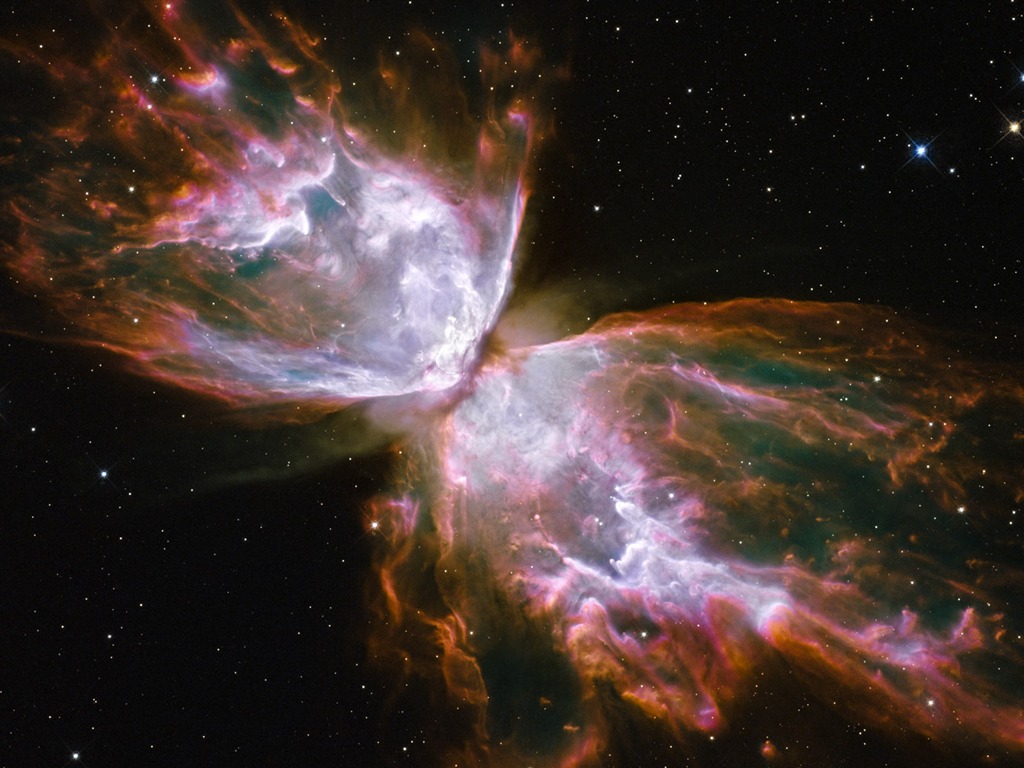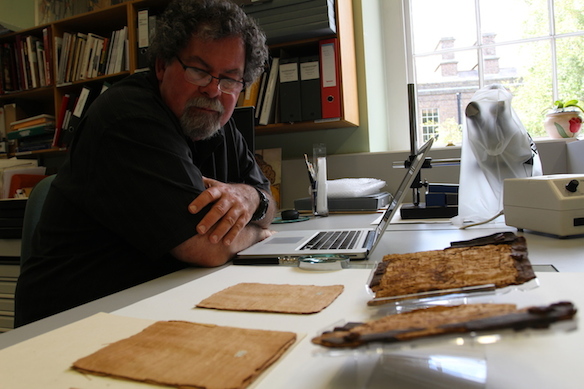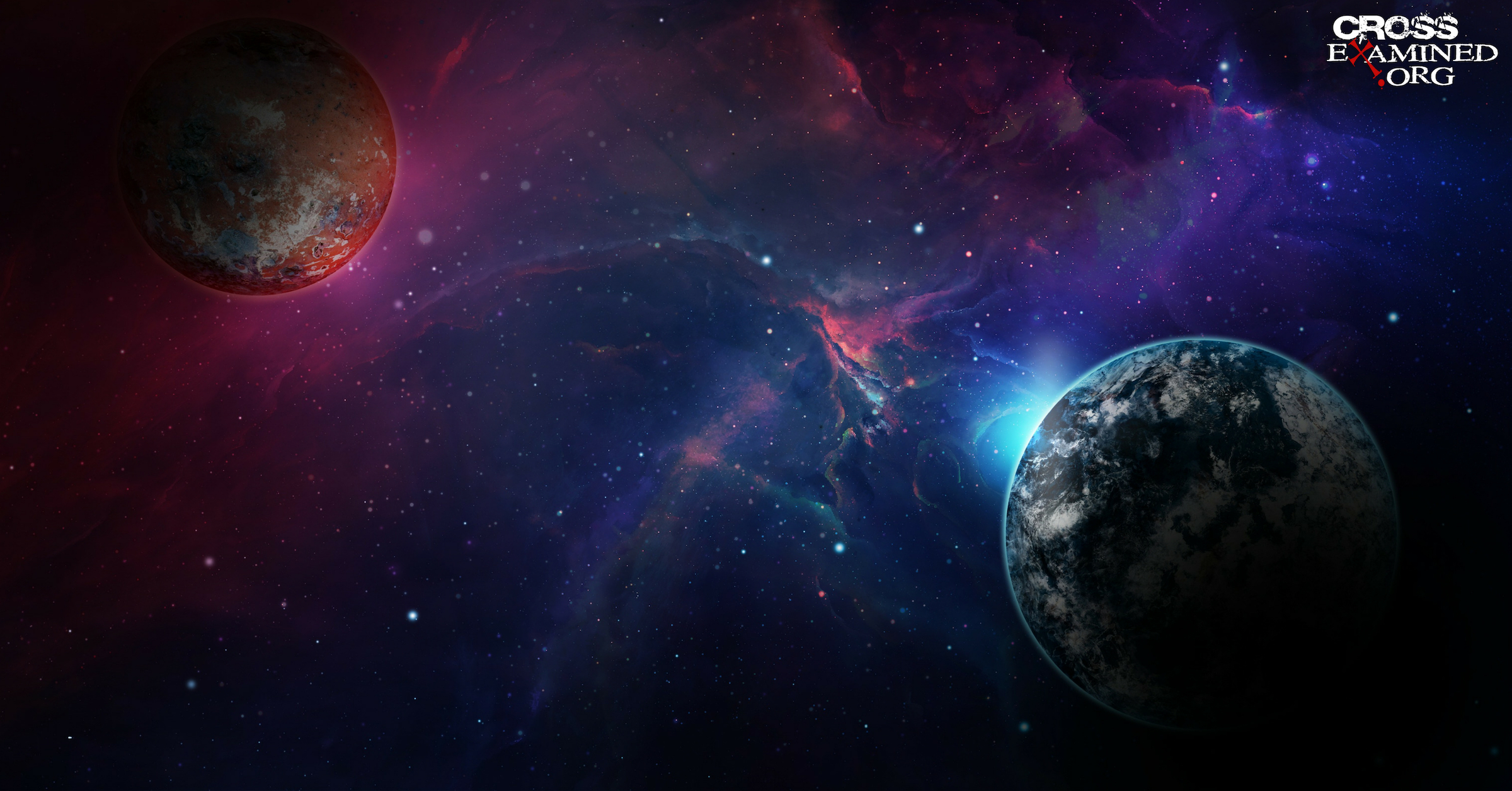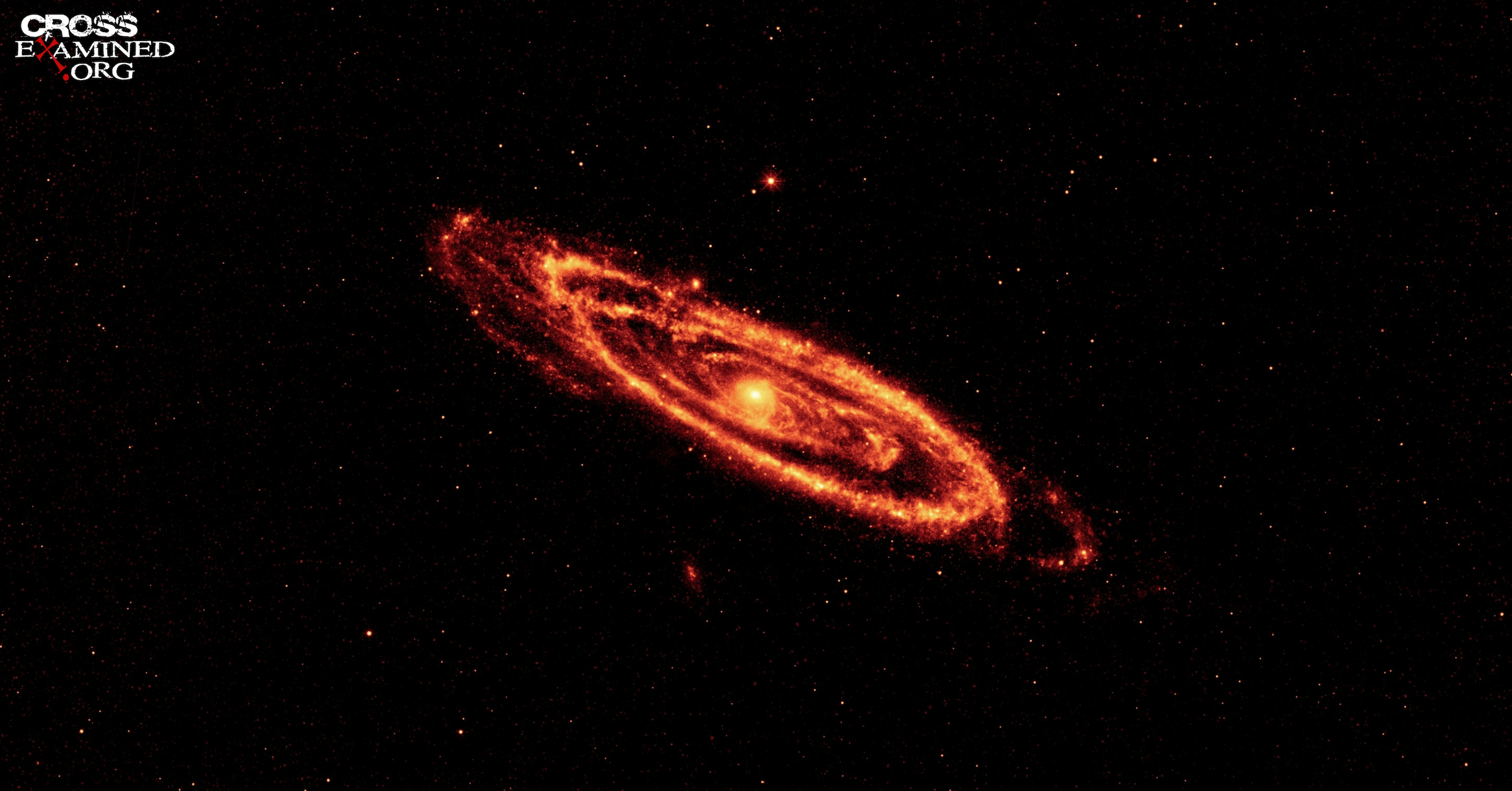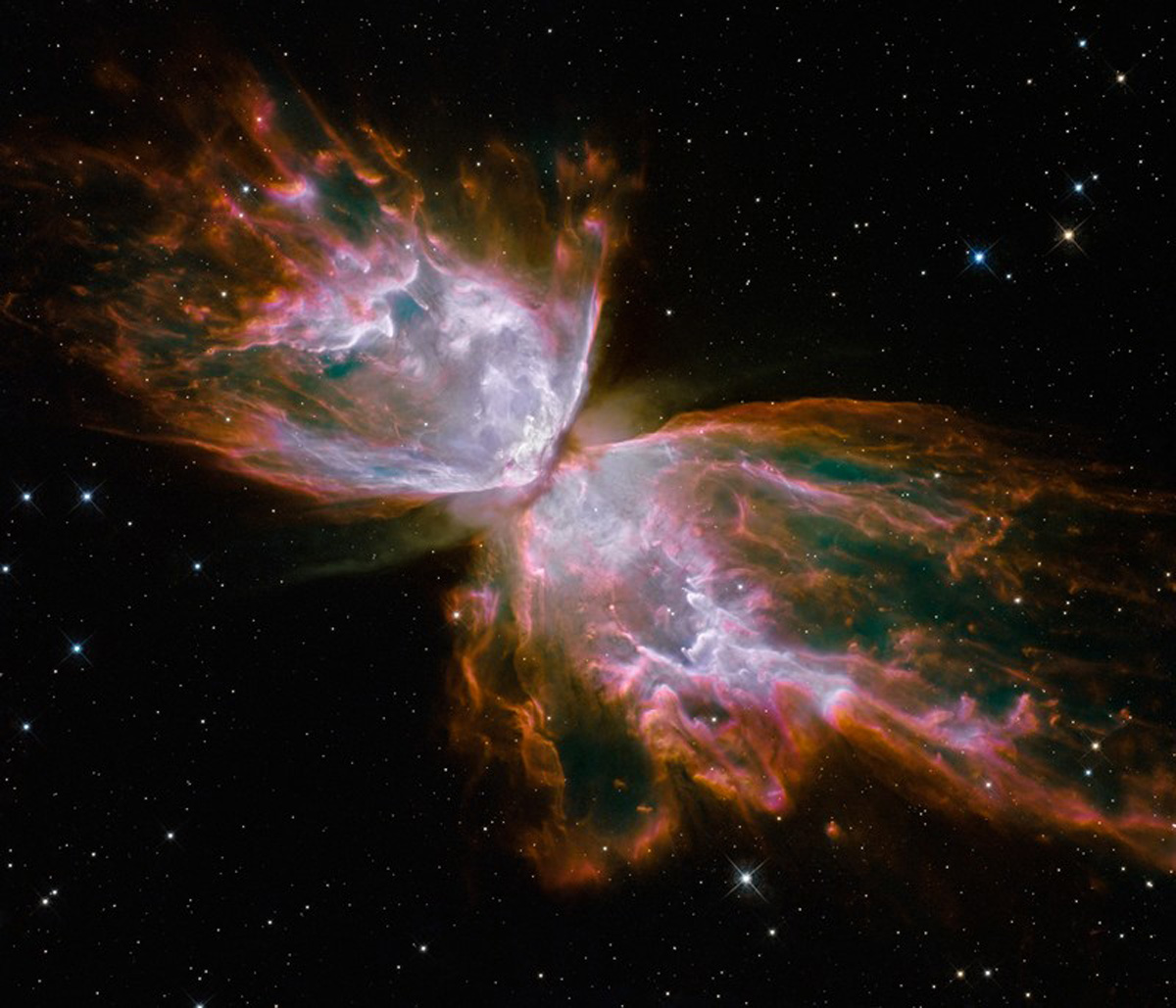Atheist Richard Dawkins has declared, “The universe we observe has precisely the properties we should expect if there is at the bottom, no design, no purpose, no evil, and no good. Nothing but blind pitiless indifference… DNA neither knows nor cares. DNA just is, and we dance to its music.”
But Dawkins doesn’t act like he actually believes that. He recently affirmed a woman has the right to choose an abortion and asserted that it would be “immoral” to give birth to a baby with Down syndrome. According to Dawkins, the “right to choose” is a good thing and giving birth to Down syndrome children is a bad thing.
Well, which is it? Is there really good and evil, or are we just moist robots dancing to the music of our DNA?
Atheists like Dawkins are often ardent supporters of rights to abortion, same-sex marriage, taxpayer-provided healthcare, welfare, contraceptives, and several other entitlements. But who says those are rights? By what objective standard are abortion, same-sex marriage, same-sex adoption, taxpayer-provided healthcare, and the like, moral rights? There isn’t such a standard in the materialistic universe of atheism. So atheists must steal the grounds for objective moral rights from God while arguing that God doesn’t exist.
Now, I am not saying that you have to believe in God to be a good person or that atheists are immoral people. Some atheists live more moral lives than many Christians. I am also not saying that atheists don’t know morality. Everyone knows basic right and wrong whether they believe in God or not. In fact, that’s exactly what the Bible teaches (see Romans 2:14-15).
What I am saying is that atheists can’t justify morality. Atheists routinely confuse knowing what’s right with justifying what’s right. They say it’s right to love. I agree, but why is it right to love. Why are we obligated to do so? The issue isn’t how we know what’s Right, but why an authoritative standard of Rightness exists in the first place.
You may come to know about objective morality in many different ways: from parents, teachers, society, your conscience, etc. And you can know it while denying God exists. But that’s like saying you can know what a book says while denying there’s an author. Of course, you can do that, but there would be no book to know unless there was an author! In other words, atheists can know objective morality while denying God exists, but there would be no objective morality unless God exists.
If material nature is all that exists, which is what most atheist’s claim, then there is no such thing as an immaterial moral law. Therefore, atheists must smuggle a moral standard into their materialistic system to get it to work, whether it’s “human flourishing,” the Golden Rule, doing what’s “best” for the most, etc. Such standards don’t exist in a materialistic universe where creatures just “dance” to the music of their DNA.
Atheists are caught in a dilemma. If God doesn’t exist, then everything is a matter of human opinion and objective moral rights don’t exist, including all those that atheists support. If God does exist, then objective moral rights exist. But those rights clearly don’t include cutting up babies in the womb, same-sex marriage, and their other invented absolutes contrary to every major religion and natural law.
Now, an atheist might say, “In our country, we have a constitution that the majority approved. We have no need to appeal to God.” True, you don’t have to appeal to God to write laws, but you do have to appeal to God if you want to ground them in anything other than human opinion. Otherwise, your “rights” are mere preferences that can be voted out of existence at the ballot box or at the whim of an activist judge or dictator. That’s why our Declaration of Independence grounds our rights in the Creator. It recognizes the fact that even if someone changes the constitution you still have certain rights because they come from God, not man-made law.
However, my point isn’t about how we should put objective God-given rights into human law. My point is, without God, there are no objective human rights. There is no right to abortion or same-sex marriage. Of course, without God, there is no right to life or natural marriage either!
In other words, no matter what side of the political aisle you’re on — no matter how passionate you believe in certain causes or rights — without God they aren’t really rights at all. Human rights amount to no more than your subjective preferences. So atheists can believe in and fight for rights to abortion, same-sex marriage, and taxpayer-provided entitlements, but they can’t justify them as truly being rights.
In fact, to be a consistent atheist — and this is going to sound outrageous, but it’s true — you can’t believe that anyone has ever actually changed the world for the better. Objectively good political or moral reform is impossibleif atheism is true. Which means you have to believe that everything Wilberforce, Lincoln, and Martin Luther King did to abolish slavery and racism wasn’t really good; it was just different. It means you have to believe that rescuing Jews from the ovens was not objectively better than murdering them. It means you have to believe that gay marriage is no better than gay bashing. (Since we’re all just “dancing to our DNA,” the gay basher was just born with the anti-gay gene. You can’t blame him!) It means you have to believe that loving people is no better than raping them.
You may be thinking, “That’s outrageous! Racism, murder, assault, and rape are objectively wrong, and people do have a right not to be harmed!” I agree. But that’s true only if God exists. In an atheistic universe, there is nothing objectively wrong with anything at any time. There are no limits. Anything goes. Which means to be a consistent atheist you have to believe in the outrageous.
If you are mad at me for these comments, then you agree with me in a very important sense. If you don’t like the behaviors and ideas I am advocating here, you are admitting that all behaviors and ideas are not equal — that some are closer to the real objective moral truth than others. But what is the source of that objective truth? It can’t be changeable, fallible human beings like you or me. It can only be God whose unchangeable nature is the ground of all moral value. That’s why atheists are unwittingly stealing from God whenever they claim a right to anything.
But how do we know that’s the Christian God? Doesn’t he do evil in the Old Testament? And what about the “separation of church and state”? Those are some of the many questions I address in my new book, Stealing from God: Why atheists need God to make their case, from which this column was adapted.
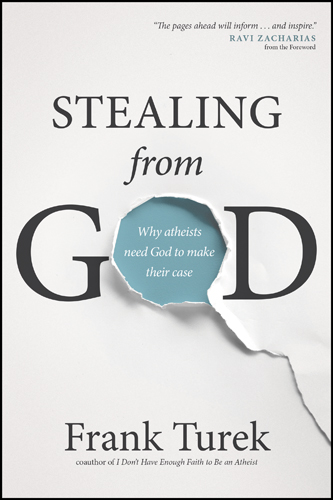
Dr. Frank Turek (D.Min.) is an award-winning author and frequent college speaker who hosts a weekly TV show on DirectTV and a radio program that airs on 186 stations around the nation. His books include I Don’t Have Enough Faith to be an Atheist and Stealing from God: Why atheists need God to make their case




